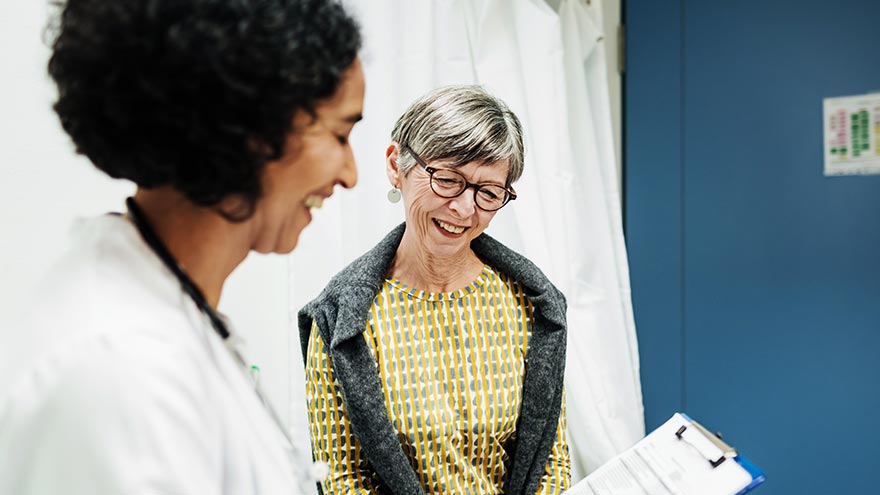Buscar
Results for 'insurance'
Clear-
Generic Drugs – What You Need to Know About Them
Without a doubt, taking medications can not only be expensive, but also confusing. In the United States, generic prescriptions are widely used, with 9 out of 10 people choosing them over a name brand. Pharmacists are a great resource to help us understand the benefits and side effects of any medication. We asked Adam Porath, PharmD, Vice President of Pharmacy at Renown Health, to answer some common questions about generic drugs. What is a generic drug? A generic drug has the same active ingredients of brand-name drugs. Brand-name drugs have a patent (special license) protecting them from competition to help the drug company recover research and development costs. When the patent expires other manufacturers are able to seek approval for a generic drug. However, the color, shape and inactive elements may be different. Per the U.S. Food & Drug Administration (FDA), a generic medicine works in the same way and provides the same clinical benefit as its brand-name version. Why do they cost less? Generic drug makers do not have the expense of costly development, research, animal and human clinical trials, marketing and advertising. This savings is passed on to the public. Also after a patent expires, several companies will compete on a generic version of a drug, further driving down prices.
Read More About Generic Drugs – What You Need to Know About Them
-
Top 5 Misconceptions About Clinical Trials
There are many misconceptions about clinical research, so we have unpacked a few common myths we hear to help you make an informed decision in your healthcare. Misconception #1: If I join a clinical trial, I’ll just be a guinea pig. Quite the opposite is true! Through honest and respectful conversation, we ensure all participants are informed of the benefits and risks associated with the clinical trial during the informed consent process. Being in a clinical trial is voluntary, and we respect our patients’ decision to join or decline to participate in the clinical trial. You can always change your mind at any time as well. When patients join a clinical trial, they receive an additional team of healthcare professionals, including additional physicians, pharmacists and research coordinators, dedicated to their safety and well-being. This means that clinical trial participants often receive more support than they would in the standard treatment setting. Misconception #2: Clinical trials are too dangerous because they use new treatments that haven’t been tested. We recognize that there are different levels of risk associated with participating in a clinical trial depending on the type of study. However, new treatments are only reviewed through clinical trials after they have gone through extensive testing. New treatments that do not show promising results for safety and potential benefit during laboratory testing do not receive approval to begin clinical trials. Your research team reviews any expected benefits and risks identified from previous studies during the informed consent process, as well as any updates that occur throughout the duration of the clinical trial. The research team stays in close contact with you during the entire process, documenting and treating any side effects that you experience for both your safety and the safety of participants like you. Misconception #3: I don't want to join a trial because I could be wasting my time receiving a placebo. A placebo is a substance that has no therapeutic effect, sometimes called a “sugar pill.” Participants who receive a placebo during a clinical trial are very important, helping researchers definitively determine the specific good and bad effects of the new medication. Many clinical trials that involve a placebo also offer what is called an open label extension or cross-over study. Cross-over studies ensure that anyone taking the placebo can begin receiving the new medication, often for several years. Cross-over studies help clinician researchers understand the long-term effects of a medication while also giving patients free access to novel care for several months and even years.

